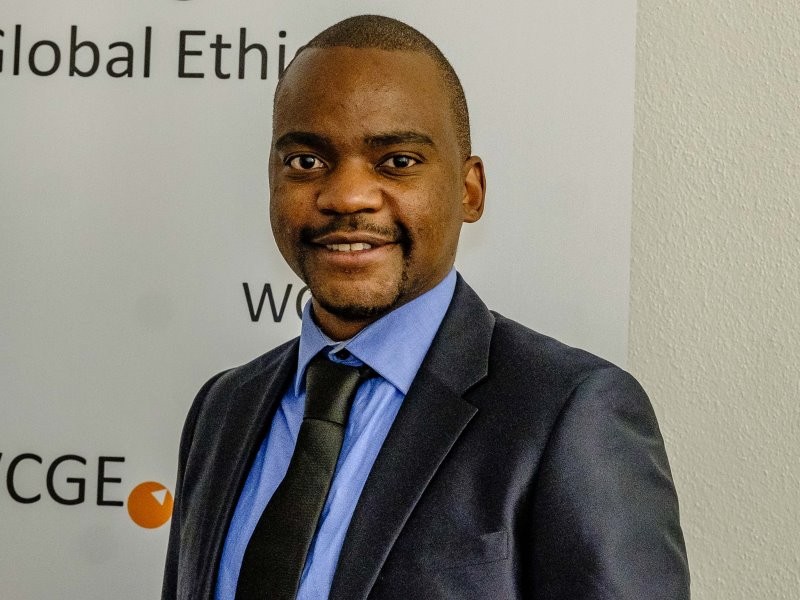
Title of Dissertation:
Self-Reliant Indigenous Entrepreneurship: Towards Inclusive Sustainable Development
Supervisor: Prof. Dr. Philipp Schreck
University: Martin-Luther-Universität Halle-Wittenberg
Scholarship: KSG Scholarship
Cohort: 3. Cohort, since 2016
[accordion activeIndex=""]
[item title="Short Abstract"]
In The Wealth and Poverty of Nations, David Landes (1998, pp. 523) states that:
“History tells us that the most successful cures for poverty come from within. … To people haunted by misery and hunger, that may add up to selfish in-difference. But at bottom, no empowerment is so effective as self-empowerment.”
What Landes (1998) is highlighting here, is that if we truly wish for people in developing economies to eradicate poverty and improve their well-being, it is essential that there be economic self-reliance. South Africa has 11 official cultures each with their own language (dialect). This PhD is about one of them –the Tswana people who speak the Setswana language. The specific traditional subgroup of the Tswana who are the focus of this research are the Bakwena ba Mogopa. The Bakwena ba Mogopa started a private company called the Boswa ba Rona Development Corporation to help their people in poor rural villages to eradicate poverty. Their company aims to exploit the resources they have as a collective in order to bring about socio-economic development and improved livelihoods for their community through commercial agriculture.
When the 2030 agenda for global sustainable development was set by the United Nations, one critical component of this vision for ‘transforming our world’ was that ‘no one should be left behind’. This phrase ‘leave no one behind’, is meant to convey that sustainable development must be experienced and shared by all, equitably in accordance with the principle of universal human dignity. Markets cannot contribute to sustainable development if they do not include the broad base of people around the world. Thus, inclusive sustainable development incorporates children, women, the marginalized, the poor and Indigenous people in both rural and urban settings. One of the ways in which inclusive sustainable development can be accomplished at the national and local level is through Indigenous Entrepreneurship.
Therefore, this research has set out to study the Boswa ba Rona Development Corporation (Boswa) as a revelatory case study of an Indigenous entrepreneurial initiative which is fostering inclusive sustainable development in South Africa. Founded in a rural South African village community called Mogopa, Boswa represents a revelatory case because the community members creatively came up with the means to raise their own start-up capital endogenously through a unique self-funding model. Using qualitative case-study research, this PhD intends to describe this new ventures emergence, its funding model and to determine its underlying rationale using ante narrative and agential storytelling theory. In this dissertation, Indigenous entrepreneurship is defined and conceptualized as:
“The creation, management and development of new ventures by Indigenous people for the benefit of Indigenous people. The organizations thus created can pertain to either the private, public or non-profit sectors. The desired and achieved benefits of venturing can range from the narrow view of economic profit for a single individual to the broad view of multiple, social and economic advantages for entire communities. Outcomes and entitlements derived from Indigenous entrepreneurship may extend to enter-prise partners and stakeholders who may be non-Indigenous”.
In summary, the focus of this PhD is on market-based Indigenous entrepreneurship through for-profit business. This dissertation aims to report the findings of a unique qualitative case study of an Indigenous new venture in South Africa which is challenging persistent poverty in the service of inclusive sustainable development.
[/item]
[item title="PhD Related Publications"]
- Thakhathi, A. & Netshitangani, T.G. “Ubuntu-as-Unity in indigenous African proverbs: a Pan-African perspective.” In Indigenous proverbs, idioms, folkstales, riddles, poems, songs, stories and metaphors: the bedrock of the ubuntu philosophy, Mosala Lesedi Publishers, 2018.
- Thakhathi, A. “Champions of change and organizational development: a return to Schön and typology for future research and practice.” In Research in organizational change and development (Volume 26). Emerald Group Publishing, 2018.
- Thakhathi, A. “Bringing International Sustainability Guidelines Home: A Case Study of a Mega South African State-Owned Enterprise.” In Research on Ethical Issues in Organizations: Ethics in the Global South (Volume 18). Emerald Publishing, 2017.
[/item]
[/accordion]
